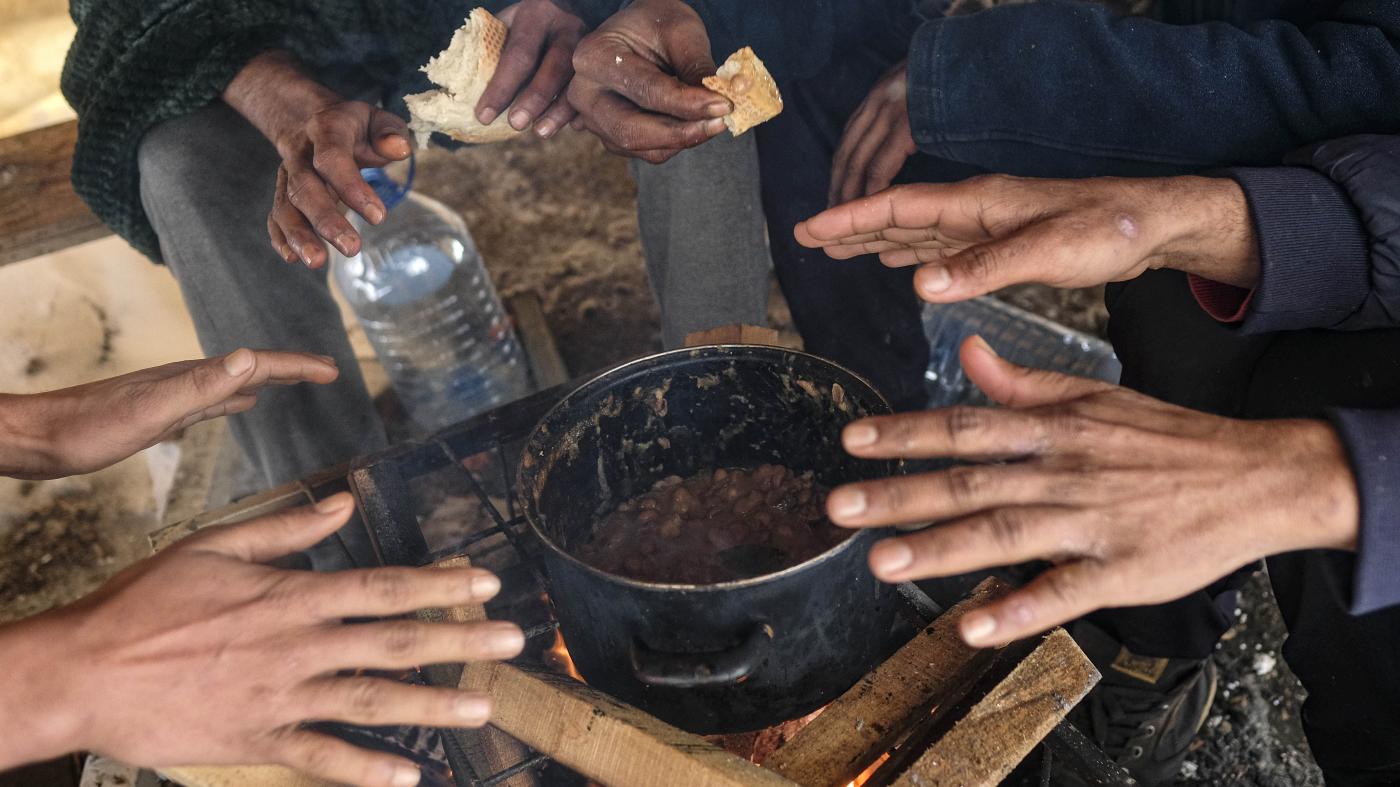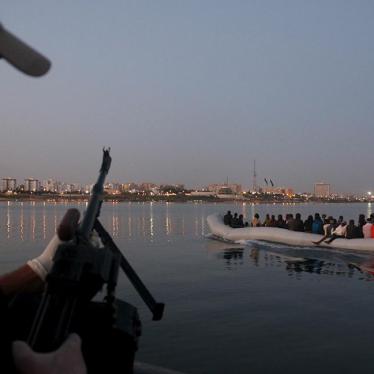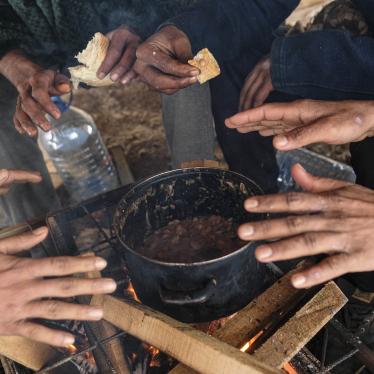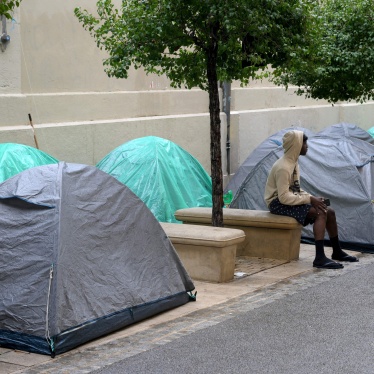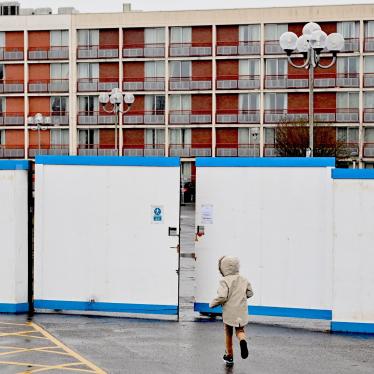Akram was back where he had started – Bosnia and Herzegovina – after being pushed back unlawfully from the borders of three European Union countries.
Only a day earlier, Akram had finally reached Italy after an exhausting and dangerous journey through the forests and mountains of Croatia and Slovenia. Italian police stopped him at the Trieste train station. “I hoped they would take me to a camp, so I didn’t run away from them,” he told me. Instead, they detained him until dark in what he described as a cell in a building outside the city, and then handed him over to police officers at the Slovenian border who in turn drove him to the Croatian border.
This was the second time Akram had been returned to Croatia, so he knew the Croatians would send him back to Bosnia and Herzegovina.
But then something happened he did not expect. “They [Croatian police officers] took me to a place in the forest with many, many police officers and even more immigrants, some of them were badly injured, did not have shoes or jackets.” Akram and a group of other men were ordered to kneel and put their hands behind their heads. Akram did not dare look around.
A flashlight blinded Akram’s eyes, and he raised his arms to protect his face. Police beat him and the other men on their backs and heads with batons. “If you scream, they will beat you more,” he said.
Whether or not pushbacks – the summary removal or literal pushback from one country across the border to another – are accompanied with the violence described above, they always deny people the right to apply for asylum and due process. The practice is illegal and yet happens at EU borders. While Italy, Slovenia, and Croatia have referred to bilateral agreements with each other to justify these practices, their courts have not agreed. In January, a court in Rome ruled that informal returns to Slovenia based on a 1996 readmission agreement were illegitimate. In July 2020, a Slovenian court ruled that the plaintiff’s right to seek asylum was violated when Slovenia returned him to Croatia from where he was forced back to Bosnia and Herzegovina.
Akram, a slim 26-year-old son of a beekeeper with a big smile, grew up in a quiet coastal town on Morocco’s Atlantic coast. He had been planning to leave Morocco and seek a better life elsewhere for a while. He saved up money to apply for a passport and in January 2020, he decided to leave for good. “I can’t go back to Morocco, there is nothing for me,” he says.
Like thousands of other people, whether they flee war, repression, discrimination, or lack of opportunities, Akram risked his life to reach Western Europe. But instead of being safe when he reached an EU border, like so many migrants Akram experienced violence by authorities along the so-called Balkan route, as the authorities tried to keep him and other migrants out.
Over the past year, Greek forces have fired teargas and rubber-coated bullets at people gathered at the Greek-Turkish land border and abandoned people in the Aegean Sea on inflatable life rafts. Italy has dumped people back into Slovenia without any due process. Evidence has mounted of Croatian police beating, humiliating, and robbing migrants before forcing them across the border into Bosnia and Herzegovina. EU member states have the right to deny international protection to asylum seekers, but only after a fair and effective procedure and not by resorting to arbitrary pushbacks and unjustified violence. The European Commission and EU member states have largely turned a blind eye to human rights violations at EU borders and failed to hold perpetrators accountable.
On his way from Turkey to Italy, Akram endured many of the abuses facing those who undertake the Balkan route. He says Greek authorities held him in horrible conditions, beat him, and forced him back into Turkey via the land border in the Evros region four times, including once from Thessaloniki, 400 kilometers from the Turkish border. Again and again, Akram would manage to cross into Greece and spend weeks walking towards its northern border with Albania, using plastic bags and leaves to protect himself from the wintery cold. He avoided villages for fear of being caught and returned to Turkey, so Akram often went hungry, carefully rationing the few dried dates he always carried in his pocket.
Despite the hardships and violence, Akram did not give up. “I had no other choice but to keep going forward.” On his fifth attempt, Akram made it to Greece and chose a truck heading north (he had looked up the country and city codes on license plates to make sure he wouldn’t accidentally end up in Bulgaria, where migrants are regularly imprisoned). Clinging to a shaft on the underbelly of the truck, he eventually made it to Albania and from there to Bosnia and Herzegovina.
Bosnia and Herzegovina’s northern border has become a dangerous bottleneck for refugees and migrants trying to reach the EU. Lack of access to asylum procedures and the absence of a coordinated humanitarian response leaves many in overcrowded reception centers or sleeping rough or in abandoned buildings. Croatian police face grave accusations of violently beating up refugees and migrants attempting to enter and traverse Croatia or apply for asylum there. Human Rights Watch and other organizations have collected testimonies of gruesome violence, including sexual violence, and theft.
Akram was returned to Bosnia and Herzegovina three times, two times from as far as northern Italy. All three times he says Croatian police beat him with batons and fists and robbed him and others of their belongings, jackets, money, and phones. It was a small victory for Akram when he managed to hide his mobile phone inside a loaf of bread.
Instead of adopting a humane approach to migration, EU member states are resorting to violence and unlawful pushbacks at their borders. Instead of holding abusers to account, the European Commission has demonstrated silent tolerance and allowed these practices to continue with impunity.
The EU should take immediate measures to ensure consequences for member states that have tolerated if not encouraged violence and rights abuses at their borders and call for perpetrators to be held to account. The Commission recently proposed a border monitoring mechanism – but many fear the nature and scope of this proposal is too narrow to adequately respond to the EU’s pushback problem. The EU Commission, member states, and the European Parliament should guarantee that such a mechanism is adequately equipped to tackle all forms of abuses faced by migrants and asylum seekers at the EU’s borders, including pushbacks and violence. It should be truly independent from border and law enforcement officers, and its findings should trigger concrete actions to ensure justice and end abuses. The Commission can lead the way and use its existing powers to bring legal action against member states that flout EU law and people’s rights.
On a cold day in November 2020, Akram reached Italy squeezed in a tiny space on the underside of a truck. Covered in grease and oil, he dared to hope this would be his last dangerous journey when he saw more and more cars with Italian license plates.
After all the hardships and dangers, Akram’s situation remains uncertain. He has a job, so he can support his family back home, and he hopes to build a life in Europe. But as long as he is undocumented, he remains vulnerable to exploitation. What worries him most is the continuous threat of being forced out of Italy yet again. “If the police stop me on my way to work, I might end up in Bosnia again.”
